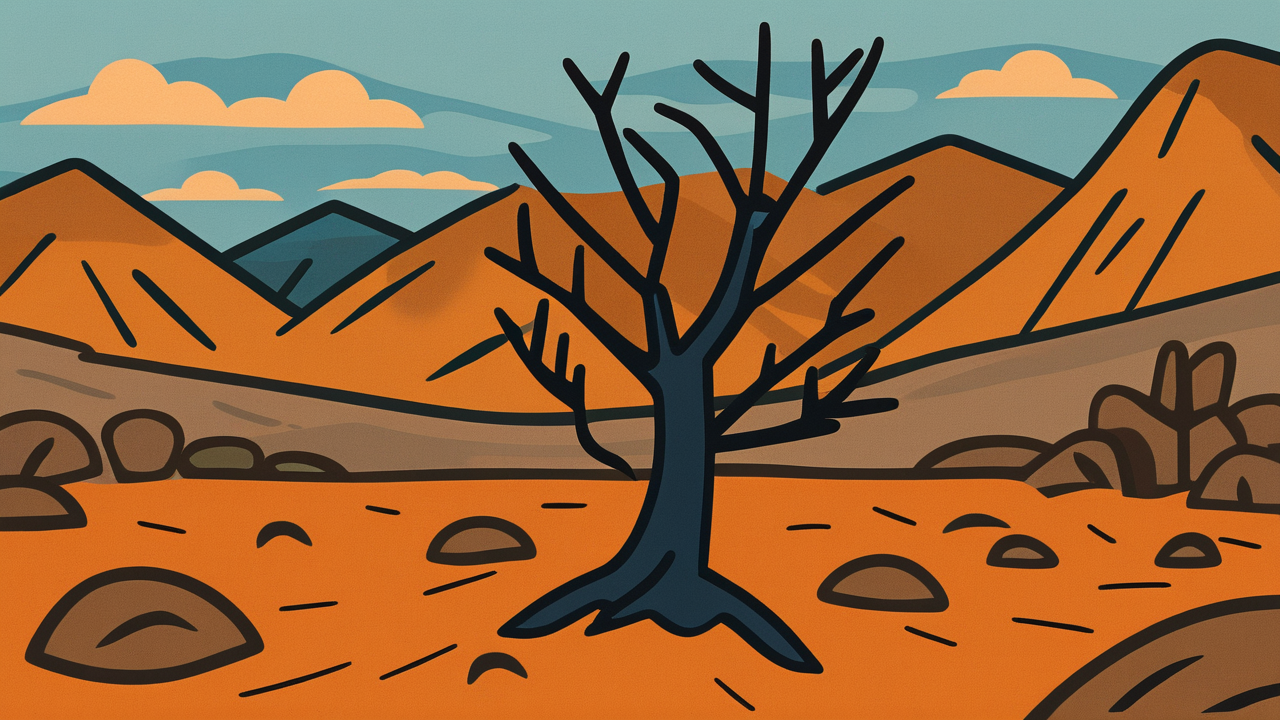How to Read “枯れ木も山の賑わい”
Kareki mo yama no nigiwai
Meaning of “枯れ木も山の賑わい”
“Dead trees also mountain’s liveliness” means that even things that appear useless at first glance are important elements that constitute the whole.
This proverb expresses that in groups or organizations, even people who may be less capable or inconspicuous bring vitality and richness to the whole by their presence. Just as dead trees add depth to a mountain’s scenery, each person has their own unique value.
It is used when expressing oneself with humility or when acknowledging the value of others’ existence. It’s used in phrases like “Even someone like me can be ‘Dead trees also mountain’s liveliness,'” expressing a positive feeling that one can still make some contribution without being overly self-deprecating.
Even in modern times, this way of thinking holds very important meaning in a society that values diversity.
Origin and Etymology
The origin of “Dead trees also mountain’s liveliness” is said to stem from expressions found in Edo period literature. This proverb is a phrase that emerged from descriptions of mountain landscapes.
When looking at a mountain, lush green trees and colorful flowers are naturally beautiful, but even dead trees that may seem worthless at first glance are important elements that constitute the overall mountain scenery. Without dead trees, the mountain’s expression would become monotonous.
This concept is deeply connected to Japanese aesthetic sensibilities. Rather than considering only perfect things as good, it’s a way of thinking that values overall harmony, including imperfect things and things that seem worthless at first glance. It can be said to reflect a uniquely Japanese aesthetic that connects to the spirit of “wabi-sabi” in tea ceremony.
People of the Edo period discovered this truth through observing nature and came to apply it to human society as well. Like dead trees on a mountain, this proverb contains a warm view of humanity that recognizes the inherent value that each individual possesses.
Usage Examples
- I’ve been asked to participate in the executive committee for the upcoming cultural festival, and I hope I can be of some help as “Dead trees also mountain’s liveliness”
- I’m an inexperienced newcomer, but with the spirit of “Dead trees also mountain’s liveliness,” I’ll do my best as a team member
Modern Interpretation
In modern society, the interpretation of “Dead trees also mountain’s liveliness” has changed significantly. As we advance into an information society and globalization, and the importance of diversity and inclusivity is emphasized, this proverb is casting new light.
While this proverb was traditionally used mainly as an expression of humility, in modern times, attention is being paid to how it overlaps with the concept of “Diversity & Inclusion.” Research results show that when people with different backgrounds and abilities gather in companies and organizations, innovation is more likely to occur, and many examples are being reported where “dead tree”-like existences create “liveliness” for the entire organization.
On the other hand, misuse is also seen in modern times. Despite originally having a positive meaning that recognizes inherent value, it is sometimes used in passive meanings like simply “making up numbers” or “can’t help having dead weight.” This is an interpretation completely opposite to the original warm view of humanity.
In modern times when SNS and online communities have developed, we daily witness examples where each person’s small posts and participation enrich the entire community. Even a single “like” or comment becomes an important element in creating the atmosphere of that space.
When AI Hears This
One of the most innovative concepts in modern diversity initiatives is the theory that “individuals who appear to contribute little actually bring unexpected value to the entire organization.” McKinsey’s 2020 research demonstrated that companies with high diversity show 25% improved profitability, attributing this to “heterogeneous elements creating productive friction that drives innovation.”
Remarkably, the Japanese proverb “Kareki mo yama no nigiwai” (Even dead trees add to the mountain’s liveliness) perfectly captures the essence of this cutting-edge theory. Dead trees might seem worthless at first glance, appearing to detract from a mountain’s beauty. In reality, however, their presence adds depth and diversity to the overall landscape while playing a crucial role in the ecosystem.
The core philosophy of inclusion that modern corporations invest billions to promote—”imperfect elements create richness in the whole”—was naturally understood by Japanese people in the Edo period as they gazed upon mountains. What Google and Apple now study with specialized teams regarding “the value of diversity,” our ancestors learned from observing the changing seasons and distilled into just nine characters. This serves as proof that human intuitive insight possesses the power to grasp universal truths that transcend time.
Lessons for Today
“Dead trees also mountain’s liveliness” teaches modern people the courage to value being themselves. When you feel down comparing yourself to others on social media, or when you feel inadequate at work, this proverb gently encourages you.
Even if you currently feel “I’m not being useful,” your very existence is actually an important part of the “liveliness” for those around you. You don’t need to be perfect. Not only the flowers blooming on the mountain, but because there are dead trees, that landscape has depth and flavor.
In modern society, each person’s small contribution can sometimes create big changes. Your casual smile, small acts of consideration, even simple questions have the power to enrich the atmosphere of that place. Don’t underestimate yourself, but don’t forget humility either – just provide your own kind of “liveliness” where you are now. What matters is that you are there.



Comments